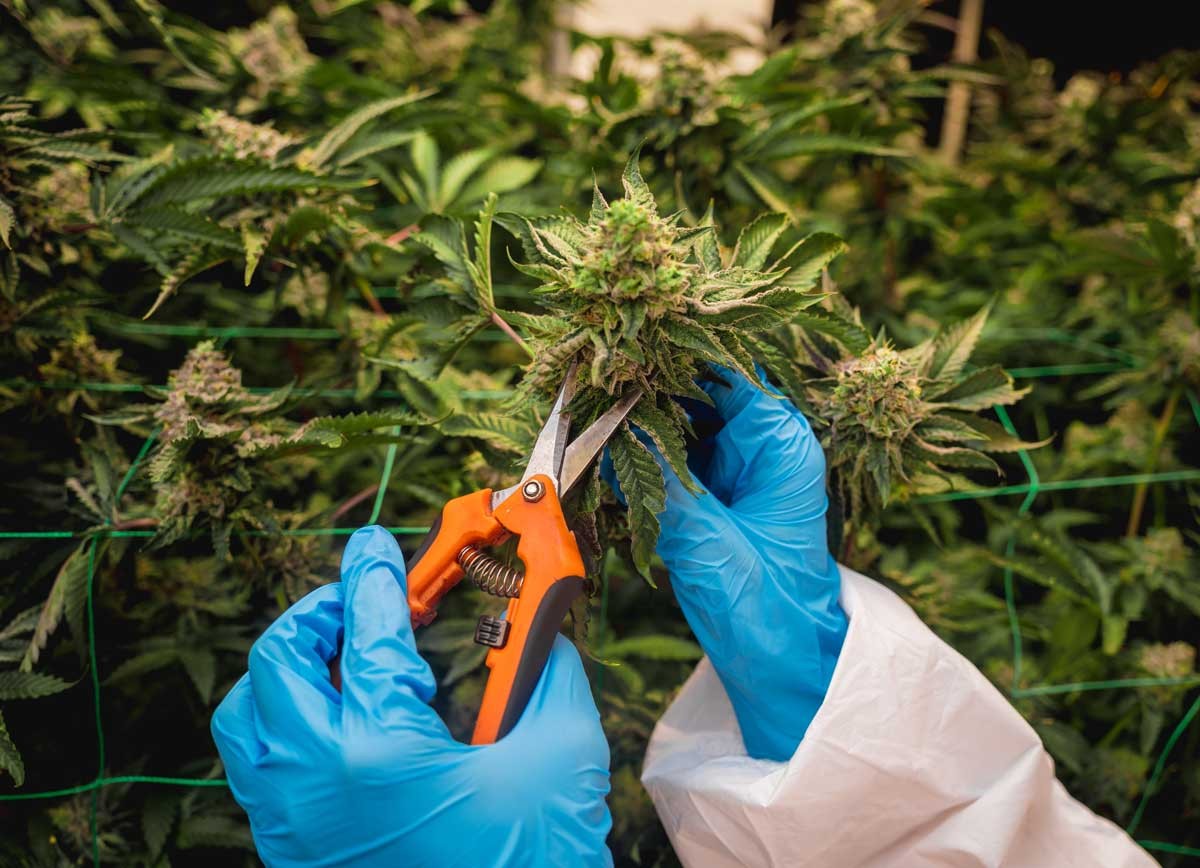
Michigan’s marijuana regulators doled out nearly $40 million in weed taxes since 2021 to fund studies about the potential medical benefits of marijuana on military veterans.
But federal restrictions on cannabis have prevented a vast majority of those studies from advancing, depriving veterans of the opportunity to benefit from the research.
In all of the studies involving marijuana containing THC, no veterans have received cannabis in a trial. THC is the active ingredient in marijuana that produces a high.
But there is good news for research involving CBD, the non-psychoactive chemical compound in cannabis that does not produce a high. At the University of Michigan, which was awarded a $7.4 million grant from cannabis taxes in 2022, veterans have already begun participating in trials. The studies are evaluating marijuana’s role in pain management and other health issues facing veterans.
“We’ve heard from a lot of veterans who want to see if this non-intoxicating component of cannabis that has little to no abuse potential is helpful for pain,” Dr. Kevin Boehnke, one of the lead researchers and assistant professor of anesthesiology at the University of Michigan, tells Metro Times. “We want to figure that out. It’s a pragmatic design that meets people where they are at and helps people figure out if this is safe and effective. We want to make sure that we’re keeping the people in the study safe. That’s our number one priority.”
When Michigan voters approved a ballot measure in November 2018 to legalize recreational marijuana, the proposal included a mandate to use cannabis tax revenue to research the drug’s health benefits for veterans.
The state’s Cannabis Regulatory Agency lived up to the promise and awarded grants to Wayne State University, the University of Michigan, and the Multidisciplinary Association for Psychedelic Studies (MAPS) in 2021 and 2022 to research the potential health effects of medical marijuana on military veterans with mental health disorders.
More than 460,000 veterans live in the state, and many of them have post-traumatic stress disorder (PTSD), anxiety, trouble sleeping, and depression.
In one case, the Food and Drug Administration halted MAP’s clinical trial to examine the efficacy of marijuana in preventing suicide and treating veterans for PTSD. It was billed as the first clinical trial to examine the inhalation of high-THC cannabis.
But the FDA said inhaling marijuana is too dangerous for participants, even though that’s how most people use cannabis.
MAPS said it’s appealing the decision to the FDA’s Office of Neuroscience.
In response, MAPS offered last year to “reduce the risks of the study” to satisfy the FDA by reducing the daily intake of marijuana during the trials and to bar participants who have a history of asthma or heart disease.
“These protocol changes reflect a significant effort to address the reasonable concerns of the FDA, while maintaining the critical real-world elements of the proposal that make this data collection meaningful,” MAPS said in a report to the Michigan Cannabis Regulatory Agency in January.
The FDA refused to back down, putting the $13 million tax-funded study at risk.
Researchers also reported having trouble getting federal approval for obtaining marijuana. Researchers are prohibited from getting marijuana from dispensaries.
The delays underscore the difficulties of researching marijuana’s potential health benefits, even though cannabis is legal and widely available in Michigan and numerous other states. As a result, veterans, who put their lives at risk to protect the country, are forced to wait indefinitely while researchers continue to navigate the federal government’s draconian approach to cannabis.
Barton Morris, principal attorney of the Cannabis Legal Group in Royal Oak, says he’s not surprised by the FDA’s unwillingness to approve the studies. Marijuana is still classified as a Schedule I narcotic with no accepted medical use.
“The FDA is not going to do anything with a Schedule 1 controlled substance,” Morris, who also is the chair of the Cannabis Law Section of the State Bar of Michigan, tells Metro Times. “There are strict rules in place.”
But Morris is hopeful the federal government will soon reclassify marijuana, which he says will open the doors for more research.
In May, the U.S. Drug Enforcement Administration (DEA) moved to reclassify marijuana as a less dangerous drug. The proposal acknowledges the medical benefits of cannabis but stops short of legalizing it for recreational use. This change would shift marijuana from the “Schedule I” classification to the less restrictive “Schedule III.”
“I’m confident the rescheduling is going to happen this fall,” Morris says. “The federal government is going to finally admit there are medical benefits to cannabis. One of the biggest benefits of rescheduling cannabis is it’s going to allow more research on the state and federal level.”
At Wayne State University, which is conducting several different studies for veterans, the delays have prompted the school to temporarily reduce the salaries of researchers.
Wayne State is the biggest recipient of the grants, receiving about $19.6 million “to coordinate and manage research into the efficacy of marijuana in treating the medical conditions” of veterans and preventing suicide.
“We continue to operate under reduced salary support for research staff members,” Wayne State said in a report to the Michigan Cannabis Regulatory Agency.
The FDA declined to comment on its actions, but said on its website that it supports “robust scientific research needed to develop new drugs from cannabis and is committed to encouraging the research and development of these new drugs” through its regulatory process.





